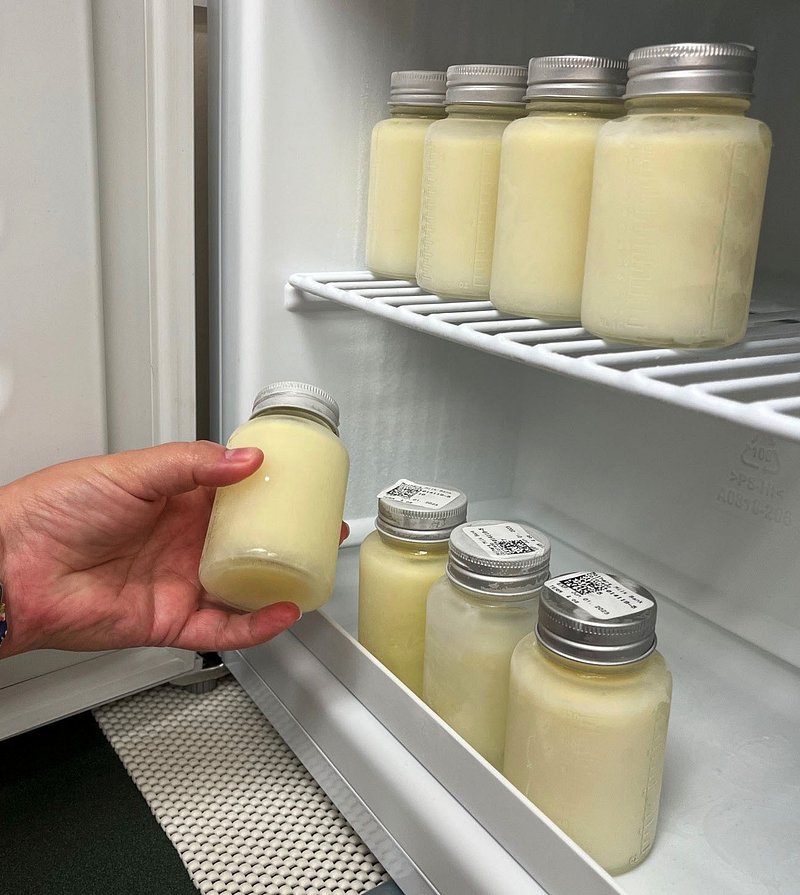Signs to Watch for: How to Determine If Your Baby Consumed Spoiled Breast Milk
As a parent, nothing is more important than ensuring the health and well-being of your baby. While breastfeeding is widely regarded as the best way to provide essential nutrition to your little one, it’s crucial to be aware of potential issues that may arise.
One such concern is the possibility of your baby consuming spoiled breast milk. This article will highlight some signs to watch for to determine if your baby has consumed spoiled breast milk.
1. Unusual Odor
Breast milk typically has a slightly sweet and pleasant smell. However, if your baby has consumed spoiled breast milk, you may notice a distinct sour or rancid odor. This can indicate that the milk has gone wrong and should not be consumed.
2. Change in Appearance
Another sign to watch for is a noticeable change in the appearance of the breast milk. Spoiled milk might appear clumpy, chunky, or off-color, such as a yellowish or bluish tint. These visual changes indicate that the milk has spoiled and is no longer safe for consumption.
3. Baby’s Behavior
If your baby has consumed spoiled breast milk, you may observe changes in their behavior. They may become fussy, irritable, or experience gastrointestinal discomfort. Watch for excessive crying, fussiness during feeding, or signs of discomfort like bloating or gas. These behavioral changes can be a result of consuming spoiled milk.
Additional Tips:
-
- Always check the expiration date on your stored breast milk and discard any milk that has passed.
-
- Store breast milk in clean, sterilized containers and refrigerate or freeze it promptly after expressing.
-
- If you suspect your breast milk has spoiled, it’s better to err on caution and discard it to ensure your baby’s safety.
-
- Consult your pediatrician if you have any concerns or questions regarding your baby’s nutrition or the quality of your breast milk.
Remember, it is essential to be vigilant when it comes to your baby’s well-being. You can ensure your baby receives nourishment from fresh and safe breast milk by being aware of the signs to watch for.
What steps can you take to prevent your baby from consuming spoiled breast milk in the first place?
To prevent your baby from consuming spoiled breast milk, you can take the following steps:
1. Proper storage: Ensure you store breast milk in clean and sterilized glass or BPA-free plastic containers. Use breast milk storage bags or bottles specifically designed for this purpose. Avoid using regular plastic bags or containers that may contaminate the milk.
2. Labeling: Always label the containers or bags with the date and time of expressing the milk. This will help you keep track of the freshness of the milk and use it promptly.
3. Proper handling: Wash your hands thoroughly before expressing or handling breast milk. This practice helps minimize the risk of introducing bacteria into the milk.
4. Temperature control: Breast milk should be refrigerated or frozen immediately after expressing. Store it at a temperature of 39°F (4°C) or below in the refrigerator and at 0°F (-18°C) or below in the freezer. Ensure that the fridge temperature is set correctly to maintain freshness.
5. First in, first out: Practice a “first in, first out” approach when using stored breast milk. Use the oldest milk first to ensure none doesn’t go well.
6. Proper thawing: If you have frozen breast milk, thaw it by placing the container in the refrigerator overnight or under warm running water. Avoid using the microwave or boiling water; these methods can destroy some beneficial components and create hot spots that may scald your baby.
7. Smell and appearance: Before feeding your baby with expressed breast milk, check its smell and appearance. Spoiled milk may have a sour or off smell and appear clumpy or discolored. If you notice any signs of spoilage, discard the milk.
8. Safe storage duration: Follow guidelines on safe storage duration. Generally, freshly expressed milk can be kept at room temperature for up to 4 hours, in the refrigerator for up to 4 days, and in the freezer for up to 6-12 months, depending on the type of freezer used.
Following these steps and maintaining proper hygiene and storage practices can minimize the risk of your baby consuming spoiled breast milk.
Are there any physical changes in your baby’s appearance or behavior that may suggest spoiled breast milk intake?
No specific physical changes in a baby’s appearance or behavior suggest spoiled breast milk intake. However, if breast milk is spoiled, it may have a sour or rancid smell and taste.
If a baby refuses to drink the milk or appears fussy or uncomfortable after feeding, it could indicate an issue with the milk. It is essential to properly store and handle breast milk to prevent spoilage and ensure its safety for the baby.
What potential health risks are associated with a baby consuming spoiled breast milk?
Consuming spoiled breast milk can pose potential health risks for a baby. Some of the potential health risks associated with spoiled breast milk include:
1. Gastrointestinal issues: Spoiled breast milk may contain bacteria or toxins that can cause gastrointestinal problems such as diarrhea, vomiting, and stomach cramps in infants.
2. Food poisoning: If breast milk is contaminated with harmful bacteria, it can lead to food poisoning in the baby, which can cause symptoms like nausea, vomiting, fever, and abdominal pain.
3. Infections: Spoiled breast milk can increase the risk of bacterial or fungal infections in infants. These infections can affect various body parts, including the digestive, respiratory, and urinary tract.
4. Dehydration: If a baby consumes spoiled breast milk and experiences vomiting or diarrhea, it can lead to dehydration. Dehydration can be dangerous for infants and may require medical attention.
5. Discomfort and refusal to feed: Spoiled breast milk may have an unpleasant taste or smell, which can cause discomfort for the baby and lead to refusal to feed. This can result in inadequate nutrition and weight loss.
Breastfeeding mothers must practice proper storage and handling techniques for breast milk to prevent spoilage and minimize the risk of these health issues for their babies.


